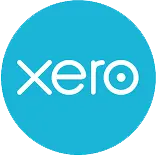FreshBooks has several features that freelancers and solo entrepreneurs or “solopreneurs” can use to run their businesses, including invoicing capabilities, client portals, and time tracking. Plus, the platform offers ready-made financial reports, which will make things easier for your accountant come tax time.
However, for small business owners who have employees, FreshBooks’ accounting features may not be up to par. This software solution lacks the ability to generate customizable reporting and some important features, like payroll and tax preparation, are only possible through integrations with third-party providers.
Learn more about FreshBooks.








